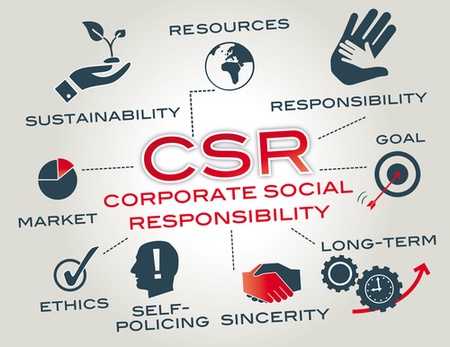For more than a decade, I have been researching whether Corporate Social Responsibility (CSR) actually advances corporate social transparency and accountability as expected. Presently I take a deeper look at CSR.
One can observe that a few decades ago CSR was considered as a self-regulatory mechanism ensuring that corporations voluntarily conduct their business in a way that is socially responsible, ethical and takes care of the environment. However, over the past decade CSR has in some instances become a mandatory corporate activity. CSR now means that many corporations legally have to comply with particular social disclosure legislation. New forms of regulation such California Transparency in Supply Chain Act (CTSCA) and the UK’s 2015 Modern Slavery Act require companies to disclose the actions they take to tackle modern slavery, child labour, human trafficking throughout their production chains (including supply chains overseas). Such actions are not just confined to the global north. Section 135 of the Indian Companies Act (2013) prescribes Indian companies to spend 2% of their pre-tax profit on CSR.
I argue that the new waves of CSR regulation is a major shift in corporate law as this is the first time certain disclosures are required to be made, regardless of whether these are relevant to shareholders and regardless of where the companies are operating in. So, companies are now often required not only to take action to eliminate modern slavery or human trafficking or human rights violations in their home countries, but also to prevent such irresponsibility in their production locations (or supply chains) in developing countries.
Recently, in an international collaboration, myself and colleague looked at how the US Conflict Mineral Rule (Section 1502) affects corporate disclosure pertaining to the elimination of human trafficking and slavery in global mineral supply chains. Focusing on a sample of global companies that deal with electronics from 20 countries, we found that companies’ conflict mineral disclosures tended not to be extensive, but that social movements (via NGO collaborations or activist protests) lead to more comprehensive, and more transparent, disclosures.
As a pioneer work, this has practical and policy implications: improved corporate transparency is the result of social activists. This means that regulation on its own may not result in comprehensive and quality CSR disclosures.
While social activists have led regulators to enact new CSR regulation, regulation on its own may not create much improvement of CSR. While devastating incident such as the 2013 Rana Plaza disaster in Bangladesh (which killed more than 1,100 workers), reminds us that CSR can be a matter of life and death, the new CSR regulation alone may not be able prevent another disaster.
This means that continuous monitoring of corporate compliance with CSR legislation by social activists is necessary to achieve the regulatory objective of CSR.
The full of this article was originally published on The Conversation UK: https://theconversation.com/what-is-corporate-social-responsibility-and-does-it-work-89710
Professor M. Azizul (Aziz) Islam is Chair in Accountancy and the Director of Post Graduate Research (Accounting & Finance) at the University of Aberdeen Business School. Prior to this, he was Associate Professor in Accounting at QUT, Senior Lecturer in Accounting at Deakin University and Lecturer in Accounting at RMIT University. He was also a faculty member at the University of Dhaka and Khulna University. Aziz is a Haskayne Distinguished Visiting Professor at the University of Calgary (2016) and was a distinguished visiting professor at the University of Gadjah Mada (2014). Aziz is a Certified Practising Accountant (CPA Australia) and a Chartered Accountant (CAANZ).


